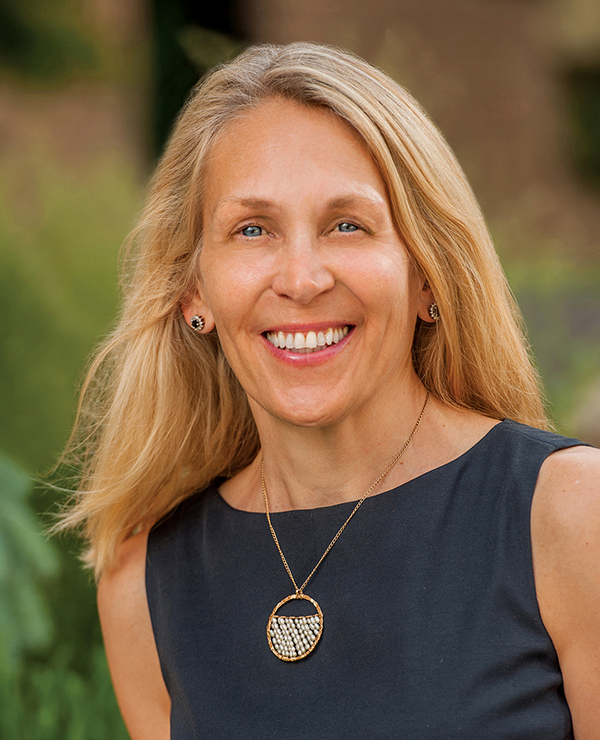Legal training
Is the National Conference of Bar Examiners losing power?

Currently, 41 of 57 jurisdictions use the Uniform Bar Exam developed by the NCBE in whole or in part. To date, 23 jurisdictions have signed up for the NextGen exam developed by the NCBE, which will be introduced in 2026. (Image from Shutterstock)
As the National Conference of Bar Examiners phases out the Uniform Bar Exam in 2028, other opportunities to practice law outside of the exam are emerging, leading some to doubt that the NCBE will continue to control licensure.
California is moving forward with plans to develop its own exam with Kaplan North America, and Oregon and Washington are introducing new paths to bar admission that do not require an exam. This means fewer bar candidates will take the exams developed by the NCBE.
“The NCBE has had an enormous amount of power over the last 30 years,” says Deborah Jones Merritt, professor emerita at Ohio State University’s Moritz College of Law. “There are clearly some competitors now, and there may be more. In that sense, the NCBE is losing power.”
Currently, 41 of 57 jurisdictions use the NCBE-created UBE in whole or in part. To date, 23 jurisdictions have signed up for the NCBE-created NextGen exam, which will be introduced in 2026.
“They basically control the market — and that’s the problem,” says Marsha Griggs, an associate professor at Saint Louis University School of Law and president of the Association of Academic Support Educators. “The problem is not necessarily the NCBE itself — the problem is that the states and the state supreme courts have brought us to this point.”
History test
Until 1972, individual jurisdictions created and scored their own bar exams. Then the nonprofit organization introduced a 200-question, multiple-choice exam developed by psychometricians and marketed it in states where bar admissions were increasing.
“That was a turning point,” says Griggs, author of “Outsourcing Self-Regulation” in the Washington and Lee Law Review. “We have experts creating tests that states can buy. So it caught on.”
Typically, bar examiners are appointed by the state Supreme Court for a limited term.
“Their expertise is being a lawyer or a judge. They’re not interested in creating a standardized test,” Griggs adds. “Many of them are not law professors, and their last testing experience was practicing law themselves.”

“They basically control the market — and that’s the problem,” says Marsha Griggs, associate professor at Saint Louis University School of Law and president of the Association of Academic Support Educators. “The problem is not necessarily the NCBE itself — the problem is that the states and the state supreme courts have brought us to this point.” (Photo by Jeannie Liataud Photography/ABA Journal)
Following the success of the Multistate Bar Exam, the NCBE introduced the Multistate Professional Responsibility Exam in 1980 and the Multistate Essay Exam in 1988. Over time, the vast majority of jurisdictions adopted some or all of these examination offerings.
“The state bar examiners have stayed out of the process of even considering what questions we should be asking and what laws we should be reviewing,” Griggs says. “They’ve gotten so far away from the test that defines lawyers – and the NCBE controlled it.”
With this control came power, sources say.
“It’s the responsibility of the states to protect the public,” says Greg Bordelon, assistant professor of law at Suffolk University. “They simply order a product that they need to measure minimum competency from a national nonprofit organization – and in doing so, give the national conference so much authority with that measurement tool that they themselves are dependent on the conference’s resources.”
Griggs says it’s important to keep a constant eye on what’s happening with NCBE’s testing products. “I think it’s wrong to put all or most of the power in the hands of a nongovernmental organization that can’t be publicly disclosed or controlled. That’s dangerous,” she says. “If they ever acted in a misguided way with their power, that’s a problem for all of us.”
Reclaim responsibility
Sources agree that states are not considering alternative options because the NCBE is incompetent. “They are very good at what they do. I don’t want to underestimate that at all,” Bordelon says. “They know how to produce a psychometrically valid and reliable instrument.”
That includes the development of the new NextGen exam, says OSU’s Merritt. “They’re actually doing a good job of listening to what other people want.” For example, after receiving feedback from legal professionals about the importance of family law, the NCBE added it back to the list of fundamental concepts and principles on the NextGen exam.
But as the NextGen exam gives states the opportunity to rethink their licensing options, other avenues, such as supervised practice, are gaining traction.
 Judith Gundersen is president and CEO of the National Conference of Bar Examiners.
Judith Gundersen is president and CEO of the National Conference of Bar Examiners.Some jurisdictions have asked the NCBE to comment on these options, NCBE President Judith Gundersen wrote to the ABA Journal.
“We have generally offered our help where we are needed,” she wrote. “Many of the factors that go into assessing the effectiveness of the bar exam also apply to non-bar exam options, and it is the NCBE’s job to help jurisdictions with our knowledge and expertise where we can.”
It left it up to jurisdictions to disclose the extent of NCBE support.
“We support all decisions made by jurisdictions, whether it is to write their own exams, use alternative routes or other mechanisms,” she says. “We welcome competition.”
Those states that move away from the tests created by the NCBE would regain responsibility for protecting the public by ensuring the competency of bar candidates, Griggs says.
“It’s about a reclamation of power, not a shift in power,” says Griggs. “The shift occurred when we reached the point where UBE had spread into so many jurisdictions. Any new measures for alternative pathways or state-created exams are an attempt to take back delegated power.”
